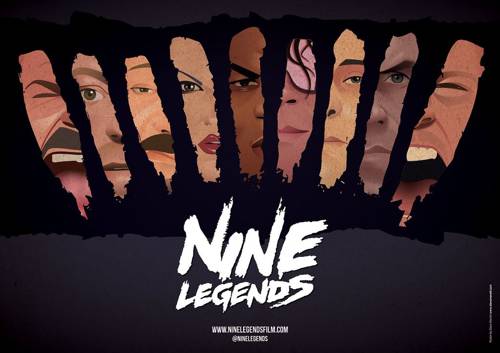
FAQ About The Cultural Influence of Sports Documentaries

What is the cultural impact of sports documentaries?
Sports documentaries have a profound cultural impact as they often bring to light the complex human stories behind athletic performances, challenging stereotypes and fostering empathy. By showcasing athletes' personal journeys, struggles, and triumphs, they contribute to a deeper understanding of diverse cultures and social issues.

How do sports documentaries enhance understanding of sports' societal role?
Sports documentaries illuminate the societal and cultural contexts in which sports occur, highlighting issues such as racism, gender inequality, and economic disparity. By examining these broader themes, they help audiences understand how sports influence and reflect societal values and conflicts.

In what ways do sports documentaries preserve athletes' narratives?
Sports documentaries serve as a medium to document and archive athletes' personal stories, achievements, and challenges. They ensure that these narratives are captured and shared with future generations, offering insights into personal and professional aspects that might otherwise be overlooked or lost over time.

Why are sports documentaries popular with audiences?
Sports documentaries are popular because they provide an in-depth look into the lives of athletes and the dynamics of sports events, often revealing inspiring and dramatic stories that go beyond the playing field. They engage audiences emotionally and intellectually, providing both entertainment and education.

How have sports documentaries influenced perceptions of athletes?
Sports documentaries often humanize athletes by showcasing their vulnerabilities, dedication, and resilience, which can lead to a more nuanced appreciation of their capabilities and the pressures they face. This deeper understanding can alter public perceptions positively by shifting focus from mere performance to personal character and efforts.

What themes are commonly explored in sports documentaries?
Common themes in sports documentaries include perseverance, social justice, the economics of sport, personal redemption, and the impact of cultural and political environments on sports. These documentaries can highlight important social issues and personal stories of athletes, resonating with diverse audiences.

Can sports documentaries influence social change?
Yes, sports documentaries have the potential to influence social change by raising awareness about critical issues, inspiring action, and motivating discussions around topics such as racial equity, gender rights, and mental health in sports. By bringing these subjects to a wider audience, they can contribute to societal debate and reform.

What role do sports documentaries play in education?
In an educational context, sports documentaries can be powerful tools for teaching subjects such as history, sociology, and ethics. They provide real-life examples and narratives that allow students to explore complex social issues within the framework of sports, fostering critical thinking and discussions.

How do sports documentaries highlight diversity in sports?
Sports documentaries often spotlight stories from underrepresented groups, showcasing diverse backgrounds, and experiences. They can provide visibility to athletes from various cultures, races, genders, and socio-economic backgrounds, promoting greater inclusivity and understanding in the sports world.

What is the significance of storytelling in sports documentaries?
Storytelling is a crucial element in sports documentaries as it aids in making viewers connect emotionally with the subjects. The narrative often revolves around overcoming adversity, personal growth, and achievements, which helps to engage audiences and convey the broader cultural and social impacts of sports.

How do sports documentaries affect athletes' legacies?
Sports documentaries can shape the legacy of athletes by depicting their careers and personal lives in ways that highlight their impacts both within and beyond sports arenas. This portrayal can ensure that their contributions are remembered not just for their athletic achievements, but also for their personal stories and social impact.

What are some famous sports documentaries that have had a cultural impact?
Famous sports documentaries like "Hoop Dreams", "The Last Dance", and "Free Solo" have had significant cultural impacts by highlighting important social issues, showcasing personal achievements, and inspiring discussions around sports and society. They have reached broad audiences and spurred conversations about the intersections of sports, culture, and identity.

How do sports documentaries differ from other types of sports media?
Sports documentaries differ from other types of sports media by focusing on narrative depth and personal stories rather than just the sporting events themselves. They often provide insight into the backgrounds, emotions, and social contexts of athletes, offering a more comprehensive view of the sports world.

What technological advances have influenced sports documentaries?
Technological advances such as high-definition cameras, drones, and digital editing software have greatly enhanced the production quality of sports documentaries. These technologies allow filmmakers to capture more dynamic and immersive footage, bringing viewers closer to the action and providing a richer storytelling experience.

How do sports documentaries contribute to the global discourse on sports?
Sports documentaries contribute to global discourse by offering international perspectives that highlight how sports interact with cultural, political, and social issues worldwide. They can bridge different cultures and encourage global dialogue on shared challenges and triumphs within the sports community.

Why might someone choose to watch a sports documentary over a regular sports event?
Individuals might choose to watch a sports documentary for its storytelling and depth, which provide insights into the athletes' backgrounds and the socio-cultural implications of sports events. Unlike regular sports events which focus on skill and competition, documentaries offer broader narratives that resonate on a personal and educational level.

How do sports documentaries help in promoting lesser-known sports?
By focusing on lesser-known sports, documentaries can raise awareness and appreciation for these disciplines, often introducing them to new audiences. They provide visibility to athletes and sports that might otherwise be overlooked, potentially increasing participation and investment in these sports.

What challenges do filmmakers face when creating sports documentaries?
Filmmakers often face challenges such as gaining access to subjects, securing funding, and portraying true accounts without sacrificing narrative engagement. Additionally, presenting complex social issues accurately while maintaining viewer interest can be daunting, requiring a balanced approach between storytelling and factual representation.

In what ways can sports documentaries challenge stereotypes?
Sports documentaries can challenge stereotypes by presenting diverse stories that break traditional narratives about athletes and sports culture. They showcase the multifaceted nature of athletes' lives, emphasizing individuality and diversity, which can help dismantle preconceived notions and foster more inclusive perceptions.

How do audiences' reactions to sports documentaries influence future productions?
Audiences' reactions play a significant role in shaping future productions, as positive engagement and feedback can encourage filmmakers to explore new themes and stories. Audience interest in certain topics or narrative styles can lead to more diversity in content and a greater emphasis on underrepresented issues within the sports documentary genre.
